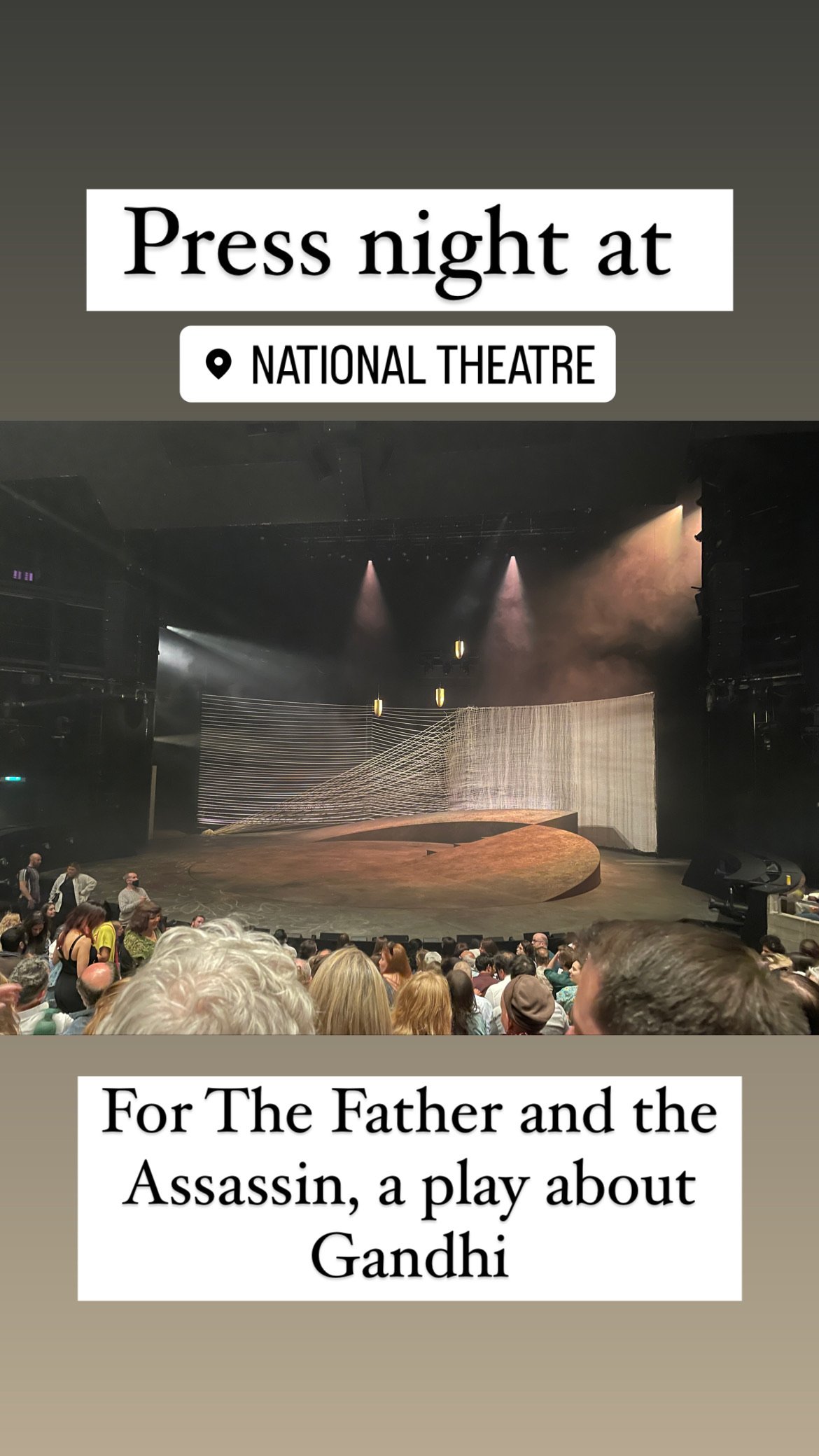Review of The Father and the Assassin
Theatre is one of the only art forms that remains truly immersive and allows you to interact with and inhabit the same space as the artists as the art happens.
And if the play is good enough then this experience can be profound and change you. Or at the very least, leave an impression that stays with long after the curtain falls.
The Father and the Assassin, at the National Theatre in London is one such play. It tells the story of Nathuram Godse, the man who assassinated India’s national hero, Mahatma Gandhi. A journalist and nationalist, in his 30 years of life before he was hung for the murder, he went from devout follower to radicalised extremist capable of murder.
But little is known about him because following his conviction, the Indian prime minister at the time, Jawalal Nehru, ordered records of Godse to be erased so that others could be radicalised in his wake. The play therefore takes a little creative liberty and fills in the blanks but is also incredibly eye-opening. And it owes this to the writing by the exceptional playwright Anupama Chandrasekhar Captivating and rich with moments of brilliant wit, the dialogue often bears such deep peals of wisdom and profound truths that you wish the act would stop for just a moment so you can absorb the words.
The cast too pull in stellar performances with a mix of stalwarts like Ravin J Ganatra who plays Sardar Vallabhai Patel and newcomers like Shubham Saraf who plays the lead, Godse. But the scene stealer is Dinita Ghoul who plays Godse’s childhood friend Vimila. Most exciting is the exploration of how the British Raj devastated the lives of ordinary Indians and the subsequent idocracy of the way two countries were made by the simple drawing of a line across a map and the brutal violence that ensued, all on a national British stage.
This, is one not to be missed.
Our Instagram story from the night.
